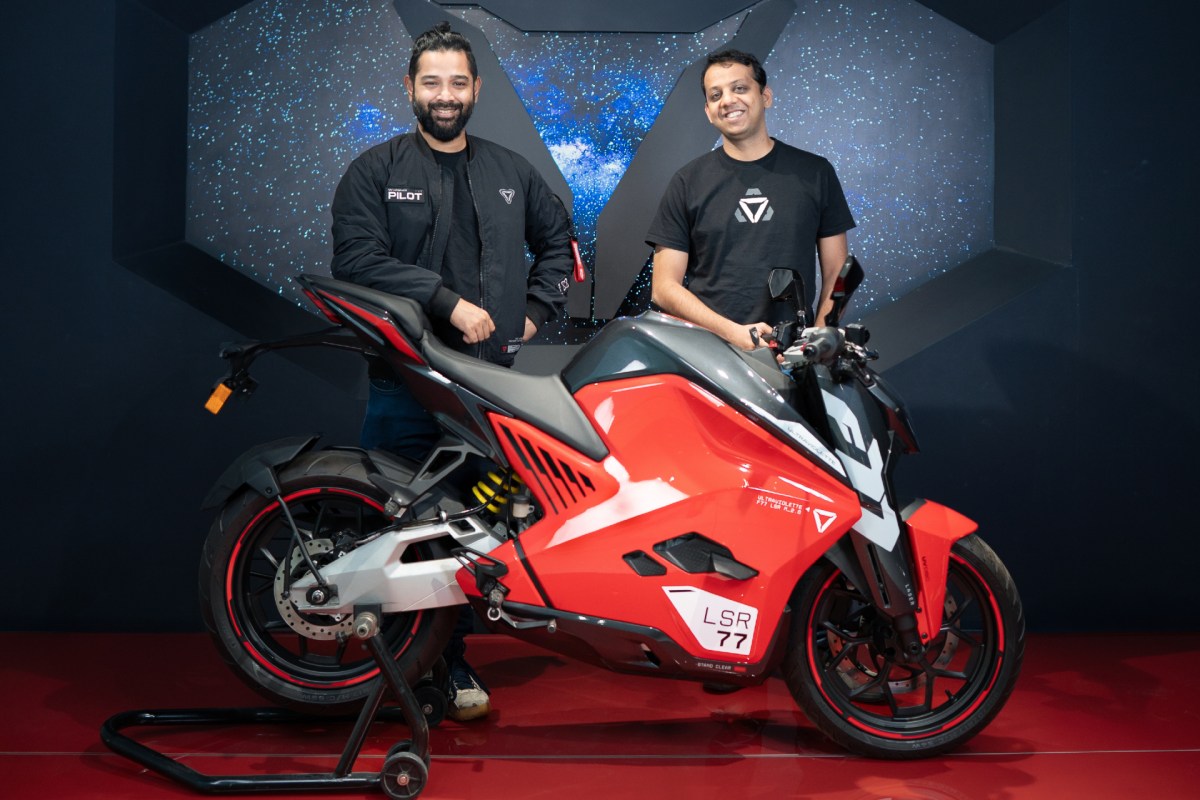Technology
TDK Fuels Ultraviolette’s Global Expansion with $21 Million Investment

Indian electric motorcycle startup Ultraviolette has secured $21 million in funding from the corporate venture arm of TDK Corporation. This investment will accelerate the company’s plans to expand its market presence internationally, particularly in Europe, Latin America, and Southeast Asia. The funding comes just two months after Ultraviolette announced its entry into ten European countries.
The nine-year-old company aims to increase its European footprint fourfold and expand its product portfolio to 14 models by early 2027. Ultraviolette’s expansion aligns with the launch of its flagship model, the F77 Mach 2, scheduled for March 2024, alongside its second product, the F77 SuperStreet, which debuted in February.
Behind Ultraviolette are co-founders and childhood friends, Narayan Subramaniam and Niraj Rajmohan. Their combined expertise in mechanical engineering, automotive design, and electronics has enabled them to target the mid-segment two-wheeler market. Inspired by the success of Tesla, they sought to create electric motorcycles that could compete with traditional internal combustion engine sports bikes ranging from 150cc to 800cc.
In an exclusive interview, Rajmohan stated, “We asked ourselves, if we have to make electric exciting in two-wheelers, what would it take? And that’s the objective with which we started.” The company’s journey began in 2016, but it took approximately four years to launch its first model in 2019. The F77 model underwent multiple design iterations before achieving its final form, which delivers over 186 miles of range and a top speed of 96 miles/hour.
Ultraviolette has also introduced innovative products, including the lightweight Shock Wave motorcycle and the Tesseract scooter, which features advanced safety technologies such as front and rear radars and cameras. The Tesseract is priced at approximately ₹120,000 ($1,370), while the motorcycles range from ₹175,000 ($2,000) to $10,000.
The startup’s vehicles are equipped with eSIM connectivity and a proprietary diagnostics system that enables predictive maintenance. Rajmohan emphasized that this system can even detect minor issues, such as when the chain requires lubrication. Customers can access these insights through a dedicated app.
Ultraviolette operates a manufacturing and assembly facility located in Bengaluru’s Electronics City, with a current capacity of 30,000 units. The company has vertically integrated its operations, handling everything from embedded software development to battery manufacturing in-house. Approximately 500 employees work for Ultraviolette, with around 200 dedicated to corporate functions and research and development.
The startup’s business model has been influenced by insights gained from conversations with early Tesla owners in the United States. Rajmohan noted, “These Tesla cars were very special, as owning them was seen as progressive. It was more of a lifestyle statement.” This understanding has guided Ultraviolette’s design and branding strategy, aiming to position the company as a global player from its inception.
The name “Ultraviolette” was chosen for its international appeal; “violet” is pronounced similarly in over 30 European languages, while “ultra” suggests cutting-edge technology. Notably, Ultraviolette sought European certification for all its vehicles even before entering the market, setting it apart from other Indian manufacturers who primarily target domestic demand.
India represents nearly 40% of global motorcycle sales, predominantly comprising internal combustion engine models. As the domestic electric vehicle market remains underdeveloped, with penetration at just 7.66% according to a report from NITI Aayog, Ultraviolette’s strategy to expand beyond India is both timely and strategic. The Indian government aims for 30% EV penetration by 2030, but current trends suggest achieving this goal may be challenging.
Selling high-end electric motorcycles in India could present obstacles; the market is highly price-sensitive, and two-wheelers are often essential for daily transportation rather than luxury items. Rajmohan stated, “We were very clear that what we’re doing is, we’re working toward segments which are more universal in nature.”
Looking ahead, Ultraviolette plans to increase its production capacity in Bengaluru to 60,000 units and establish a larger facility to scale production to 300,000 units by early next year. The startup currently operates 20 stores across Indian cities, with plans to expand this number to around 100 by March next year. Approximately 50 of these new stores are expected to launch by the festive season later this year.
Ultraviolette has already sold over 3,000 motorcycles in India and projects sales of up to 10,000 by the end of this year. The company targets over $50 million in revenue by the conclusion of the current financial year. To date, Ultraviolette has raised approximately $75 million in funding, with investors including Qualcomm Ventures, Exor, and TVS Motor.
-

 Technology4 months ago
Technology4 months agoDiscover the Top 10 Calorie Counting Apps of 2025
-

 Health2 months ago
Health2 months agoBella Hadid Shares Health Update After Treatment for Lyme Disease
-

 Health3 months ago
Health3 months agoErin Bates Shares Recovery Update Following Sepsis Complications
-

 Technology3 weeks ago
Technology3 weeks agoDiscover 2025’s Top GPUs for Exceptional 4K Gaming Performance
-

 Technology2 months ago
Technology2 months agoElectric Moto Influencer Surronster Arrested in Tijuana
-

 Technology4 months ago
Technology4 months agoDiscover How to Reverse Image Search Using ChatGPT Effortlessly
-

 Technology4 months ago
Technology4 months agoMeta Initiates $60B AI Data Center Expansion, Starting in Ohio
-

 Technology4 months ago
Technology4 months agoRecovering a Suspended TikTok Account: A Step-by-Step Guide
-

 Health4 months ago
Health4 months agoTested: Rab Firewall Mountain Jacket Survives Harsh Conditions
-

 Lifestyle4 months ago
Lifestyle4 months agoBelton Family Reunites After Daughter Survives Hill Country Floods
-

 Technology3 months ago
Technology3 months agoUncovering the Top Five Most Challenging Motorcycles to Ride
-

 Technology4 weeks ago
Technology4 weeks agoDiscover the Best Wireless Earbuds for Every Lifestyle





















